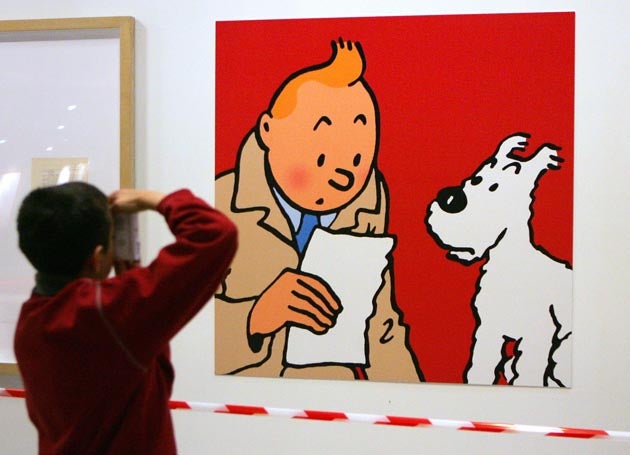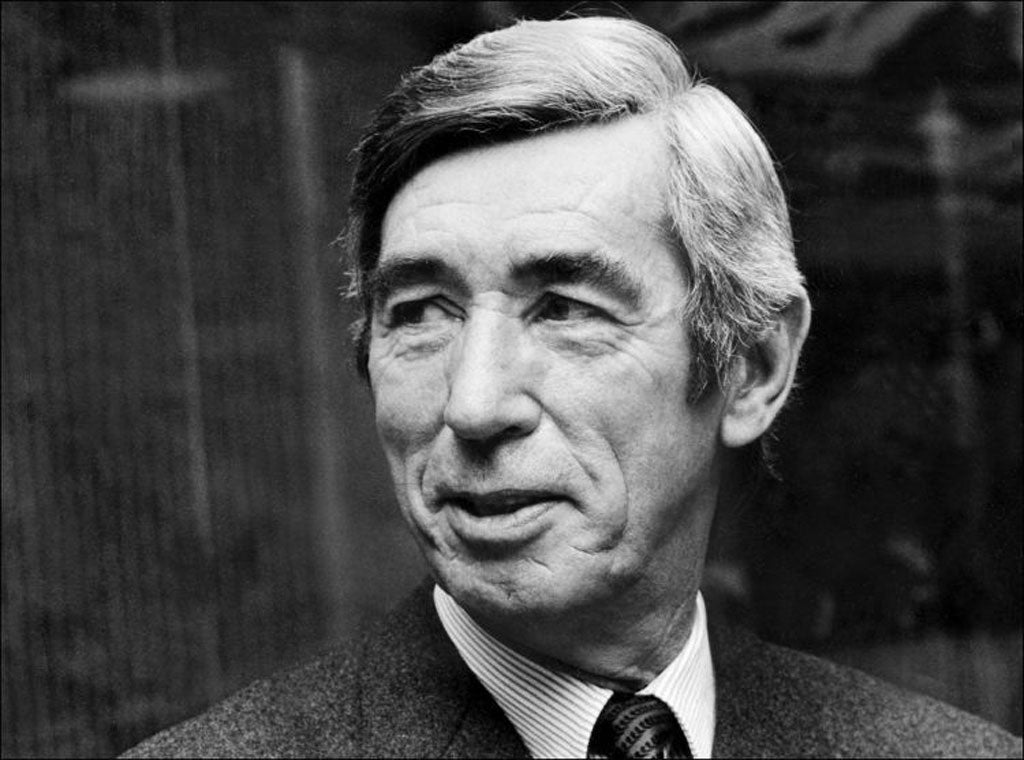The Independent's journalism is supported by our readers. When you purchase through links on our site, we may earn commission.
Tintin at 90: How the globe-trotting adventurer satirised the Soviet Union
Belgian boy reporter's first caper saw him expose corruption in the USSR

Your support helps us to tell the story
From reproductive rights to climate change to Big Tech, The Independent is on the ground when the story is developing. Whether it's investigating the financials of Elon Musk's pro-Trump PAC or producing our latest documentary, 'The A Word', which shines a light on the American women fighting for reproductive rights, we know how important it is to parse out the facts from the messaging.
At such a critical moment in US history, we need reporters on the ground. Your donation allows us to keep sending journalists to speak to both sides of the story.
The Independent is trusted by Americans across the entire political spectrum. And unlike many other quality news outlets, we choose not to lock Americans out of our reporting and analysis with paywalls. We believe quality journalism should be available to everyone, paid for by those who can afford it.
Your support makes all the difference.Tintin, the young reporter famed for his exotic adventures exposing skullduggery across the world, turns 90 this week.
The character was created by Belgian cartoonist Georges Remi, better known as Herge, and first appeared in strip form in the pages of Le Petit Vingtieme – a children’s supplement to the right-wing Catholic broadsheet Le Vingtieme Siecle – on 10 January 1929.
His exploits were an instant success and Tintin went on to appear in 24 graphic novels, all drawn by Herge is his distinctive “clear line” style, before the creator brought the series to a close in 1976.
Recognised the world over for his trademark quiff and wire fox terrier Snowy, Tintin is loved for his plucky spirit and the earnest indignation with which he reacts to the outrages and intrigues he uncovers at the hands of underworld ne’er-do-wells.
Unfolding at a frantic pace, The Adventures of Tintin series also offers an unforgettable supporting cast, from the irascible mariner Captain Haddock to Thomson and Thompson, the most hapless duo to sport bowler hats since Laurel and Hardy.
One of the central appeals of Herge’s work is its relish for Tintin’s own daring-do, the character pursuing Holy Grails, Maltese Falcons and Hitchcockian MacGuffins from Tokyo to the Andes, navigating a world of spies, gangsters, dowagers and aristocrats.
That Steven Spielberg should have adapted The Secret of the Unicorn for the big screen in 2011 is fitting given that Tintin stands as an obvious inspiration behind the filmmaker’s own Indiana Jones franchise.
Crucially, Tintin’s capers were grounded in a realistic geopolitical landscape. Rarely was this put to more extraordinary use than in his very first album, Tintin in the Land of the Soviets, which was serialised in 1929. It appeared in black-and-white book form in 1930 but not in colour until 2017 at its author’s request, making the 1930 edition itself a highly-prized collector’s item for much of the 20th century.
Tintin, a cub journalist for Le Vingtieme Siecle in Brussels, travels to the USSR by train to report on the Bolshevik way of life. This is, incidentally, the first and last time the correspondent is seen actually filing a story. Nice work if you can get it.
Dogged by the secret police and denounced as a “dirty little bourgeois” before he evens arrives, Tintin quickly realises that the political hierarchy are fooling “the poor idiots who still believe in a Red Paradise” – they are keeping the people starving and have created an industry of bogus factories to dupe visiting British Marxists into disseminating Soviet gospel abroad.

After witnessing fixed elections, favouritism at the breadlines and a grain export conspiracy, Tintin and Snowy narrowly escape a Red Army firing squad, only to wander into a hideout where Lenin, Trotsky and Stalin have “collected together wealth stolen from the people”.
Having exposed the October Revolution as a grand scam, the pair return home to a hero’s welcome.
Perhaps not Herge’s finest hour, the work is a relatively crude piece of anti-Communist propaganda that suited the purposes of his employer, the Abbe Norbert Wallez, a fascist and admirer of Benito Mussolini. Herge’s association with Le Vingtieme Siecle, particularly as a result of its collaborationist period under Nazi occupation, is among the more regrettable aspects of his legacy.
But the story was a product of its particular historical moment. Anti-Russian sentiment in Belgium at the time was such that an exhibition on Soviet life in Brussels was vandalised in 1928.
Herge himself was inspired by disgust at the bloody and botched execution of the Romanovs a decade earlier and by Moscow Unveiled, an exposé written by Joseph Douillet, the former Belgian consul to Rostov-on-Don, that was published the same year and given to the cartoonist by the Abbe Wallez.
Le Vingtieme Siecle brilliantly capitalised on the atmosphere of suspicion against the USSR in promoting Tintin in the Land of the Soviets, publishing fabricated threatening letters from the Kremlin ordering its serialisation be stopped. They also hired a 15-year-old lookalike, Lucien Peppermans, to pose as a reporter at Gare du Nord railway station in Brussels.
Despite the lack of finesse or subtlety in the finished work, much of Herge’s criticism of Soviet corruption has stood the test of time. As The Economist observed in 1999: “The land of hunger and tyranny painted by Herge was uncannily accurate, even though he had never been there.”
Join our commenting forum
Join thought-provoking conversations, follow other Independent readers and see their replies
Comments